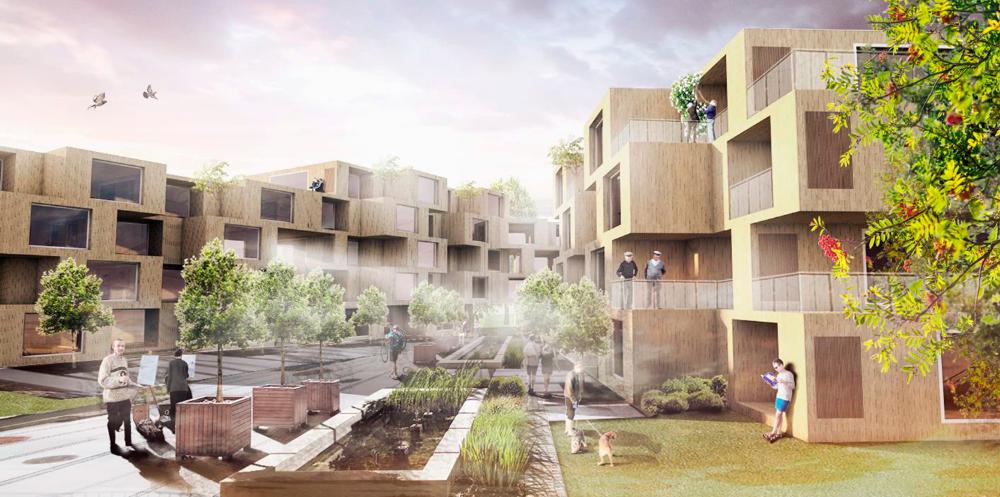About - Department of Archtecture and Technology
About the department

The department has a long and proud tradition in research on sustainable architecture, going all the way back to professor Bugge and his experimental buildings from 1917. The department has a solid staff of researchers and is heavily represented within several fields. The staff also consists of both practicing architects and artists.
The scholarly activity is organized in the following subject groups, each with a designated lecturer:
FORMATION, THEORY AND HISTORY
Basic understanding of historical architectural perspectives and works of architecture from earlier times is a prerequisite for the comprehension and interpretation of today’s architecture and our built surroundings. The experience, reflection and the knowledge concerning the effects of formation, light and color, constitutes the baseline for developing architects. The subject group dispose two different labs: Room and light laboratory and FormLab. The subject group is part of the network formed by the departments of architecture, urban design, design and art.
BUILDING MATERIALS AND BUILDING STRUCTURES
This field covers the technical and constructional perspectives of projecting and the usage of buildings. A prerequisite for the development of high quality architectural solutions is the knowledge of how to exploit the technical, physical/constructional and aesthetical qualities of material and components. Knowledge of wood as a building material is in focus. Research and infrastructure connected to prefabrication of building parts based on digital models and automated production is a strategic target area.
TRANSFORMATION, CONSERVATION AND DEVELOPMENT – INCLUDING TRADITIONAL BUILDING CRAFT
Conservation and development of existing buildings is a growing field of interest for architects, and concerns both single standing buildings and the built environment. There is a special curricular emphasis on highlighting and explaining the social, ideological and technical premises/prerequisites that has influenced the shaping and design of buildings and the built environment throughout history. The subject area is experiencing an considerable interest and growth. Our scholars are both nationally and internationally oriented.
Traditional building craft has a natural and indispensable place within the field of preservation of cultural monuments and within the building industry – and is a key to the understanding, preservation and development of existing buildings. Research on the traditional methods constitutes a central reference for the development of good and automated production of building components. The education is in accordance with the objectives of Unesco on the preservation of non-material cultural inheritance, and also to our aim to educate and develop crafts persons through a complete course of study.
ENERGY EFFICIANT AND -SUSTAINABLE BUILDINGS
Buildings alone stands for 40% of the total energy consumption in Norway, and generates 40% of the country's waste. Architects are central to working towards reducing these numbers, both in the phases of production and during operations. The objectives of the subject field is to develop knowledge within sustainable energy and resource consumption, and to utilize these in both the projecting of new buildings, and in energy- and environmental measures in existing buildings.
Years of research at the institute, and teaching within energy- and environmental aspects in architecture, has laid the foundations for establishing the national research center: Research Center on Zero Emission Neighborhoods in Smart Cities: ZEN in cooperation with SINTEF, other faculties at NTNU, industrial partners and the civil services. ZEN builds on the success from the previous research center ZEB (Zero Emission Buildings). ZEN holds a central role at the department and the faculty when it comes to contributing to the UN sustainability goals, comprehensive approaches and the economy. The subject group shares laboratories with both SINTEF and engineering faculties.
Contact
- Tel: +47 73595090
- For enquiries, please send email to:
postmottak@ad.ntnu.no - For other enquiries:
Reception, Sentralbygg 1, 8th floor - Visiting address: Alfred Getz vei 3, Sentralbygg 1, Floor 7
- Postal address:
Department of Architecture and Technology
NTNU
7491 Trondheim
